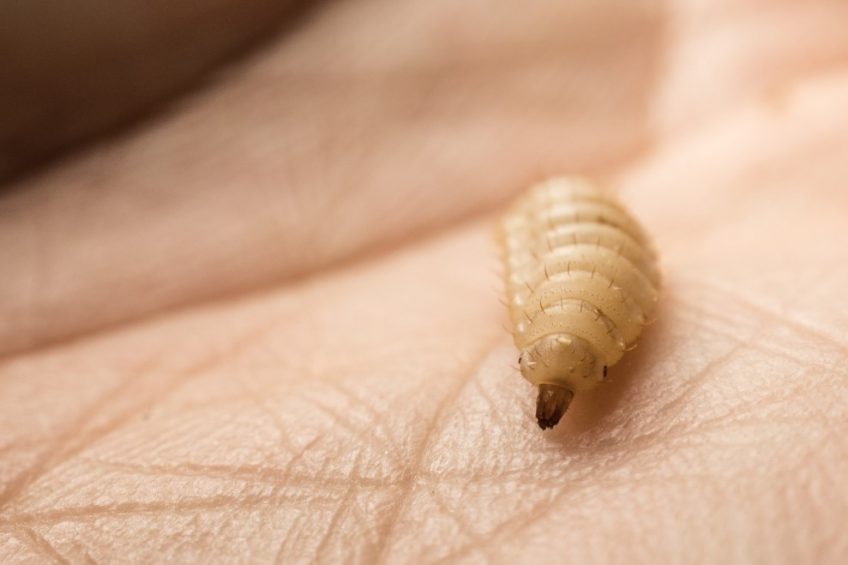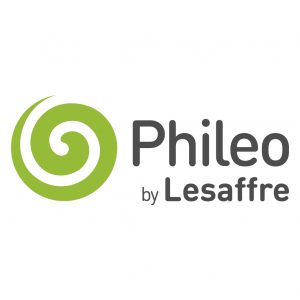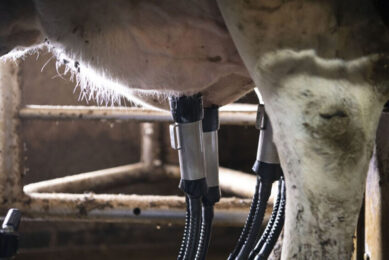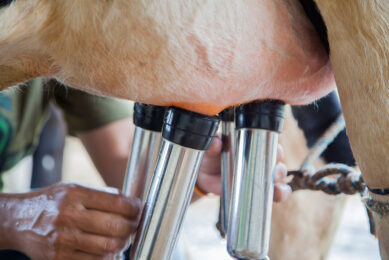Yeast probiotics on black soldier fly improve performance

To contribute to food security and natural resource sustainability, Phileo by Lesaffre is applying a rigorous scientific approach to select and demonstrate the benefits of primary-produced yeast probiotics and their proven ability to improve the production of insects, including the Black Soldier Fly increasingly used in animal feed.
According to reports published by the Food and Agricultural Organization of the United Nations (FAO) in 2009, the steep rise of the human population expected by 2050 requires at least a 70% increase in world animal protein production. To face that challenge, different species of insects, such as the black soldier fly (Hermetia illucens), have revealed to be some of the most viable alternatives.
However, scaling up the production of a newly domesticated insect species requires constant improvement of breeding practices to secure better zootechnical performance of both adults and larvae. Hence, as this industry becomes more sizable, new health and production issues are expected to arise making business sustainability more challenging.
To help face those challenges, Phileo by Lesaffre develops solutions backed up by years of research to help maximise insect productivity, and thus contribute to food security and natural resources sustainability.
Yeast probiotics can increase the zootechnical performance of black soldier fly
Some trial reports confirm that spent yeasts have already been used to enrich the insect feed substrate, although a lack of product consistency often leads to a lack of performance repeatability. In this context, Phileo is already applying a rigorous scientific approach to select and demonstrate the benefits of primary-produced yeasts and their proven ability to improve the production of insects. Trials conducted at Wageningen University in the Netherlands (2019), and in Entobel‘s facilities in Vietnam (2021), have confirmed that the addition of Actisaf Sc47 contributes to boosting larvae growth, yields of protein meal and lipids, and additionally optimises the feed efficiency on black soldier fly.
Research determines the effect of yeast probiotics
With the objective to evaluate the effect of yeast probiotics in the production of black soldier fly, 3 treatments were evaluated in the feed subtract of brewery spent grain:
- Actisaf Sc47 at 0.06% dried weight (7.8×106 CFU/g)
- Actisaf Sc47 at 0.03% dried weight (3.9×106 CFU/g)
- Non-treated control
For each treatment, the brewery spent grain subtract was at 70% humidity and followed a 3-day period of anaerobic fermentation. They were then put in trays adding a specific weight of 1st instar larvae. For each treatment, 6 replications (1 tray with 12kg of feed substrate each) were included.
At harvesting time, 5 days after placing the first instar larvae in the rearing substrate, the larvae fresh yield was measured (kg), followed by lipid extraction and protein meal milling, also to be weighted for each treatment (g). The bioconversion rates (BCR) were calculated by the following formula: BCR=Dry larvae weight/(diet on a dry weight basis before feeding – diet on a dry weight basis after feeding). The statistical analysis was done in SPSS 16 Software, a 1-way ANOVA, (P>0.05) with subsequent Tukey HSD tests were run to determine the difference among treatments for fresh larvae yield.
Results and discussion
Significant differences were found among treatments. The highest larvae yield was found with Actisaf Sc47 at 0.06% (2.78 g ± 0.08), +6.5% higher than the non-treated control (2.61 g ± 0.13).
Outstanding differences were also found in the lipids and protein meals obtained after processing the larvae, Actisaf Sc47 at 0.06% rate provided +17.2% lipid yield, and +5.5% protein meal yield, versus the non-treated control. These results confirm the conclusions from the trial at Wageningen University in 2019 (Rabot & Richard, 2019), where it was found that Actisaf Sc 47 increases the larvae growth by 10% and the larvae fat body composition by 35% versus the non-treated control. In that trial, it was also found that fat quality can be improved by decreasing the saturated and trans fatty acids and by increasing the poly-unsaturated fatty acids.
Figure 1: Adding 0.06% (7.8×106CFU/g) and 0.03% (7.8×106CFU/g) dried weight, improves fresh larvae, lipids, and protein meal yields.

Both Actisaf Sc47 treatments showed a bioconversion rate higher than the control treatment, and the highest one was recorded at the doses of 0.06% with +22% compared to the non-treated control.
Figure 2: Adding 0.06% (7.8×106CFU/g) and 0.03% (7.8×106CFU/g) dried weight, improves the feed conversion rate on black soldier fly.

These results suggest that the addition of yeast in the insect feeding substrate helps to improve the feed efficiency in black soldier fly.
Yeast probiotics can increase the zootechnical performance of black soldier fly larvae
The present study illustrates that yeast probiotics can increase the zootechnical performance of black soldier fly larvae when added to the rearing substrate followed by a 3-day fermentation period. The yield increase of about 6.5% of total fresh larvae weight, 17% of lipids, 5.5% of protein meal, and 22% of the feed conversion rate could represent a significant contribution to commercial producers of black soldier fly. These results are promising and could be extended to other commercial black soldier fly operations to replicate the results. Further trials are necessary to deepen the current findings under fermentation treatments by adding yeasts to different feed substrates to boost the zootechnical performance of black soldier fly.
This research was conducted by Jesus González and Yoann Perrault from Phileo by Lesaffre in Marcq-en-Baroeul, France, as well as Nguyen Thi Huong, K Luyt and Alexandre de Caters from the Department of Biology, Entobel, Vietnam.
References available on request. Please contact Jesus González (j.gonzalez@phileo.lesaffre.com) or Alexandre de Caters (alexandre.decaters@entobel.com).






